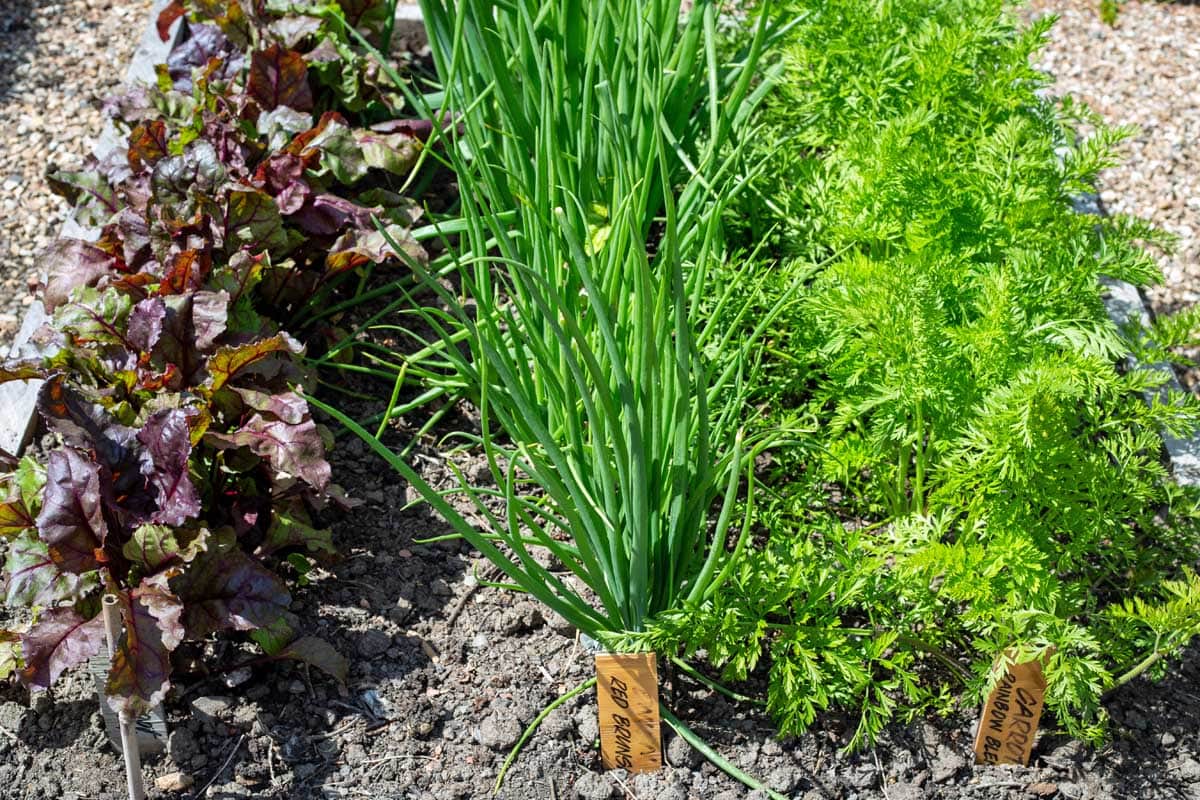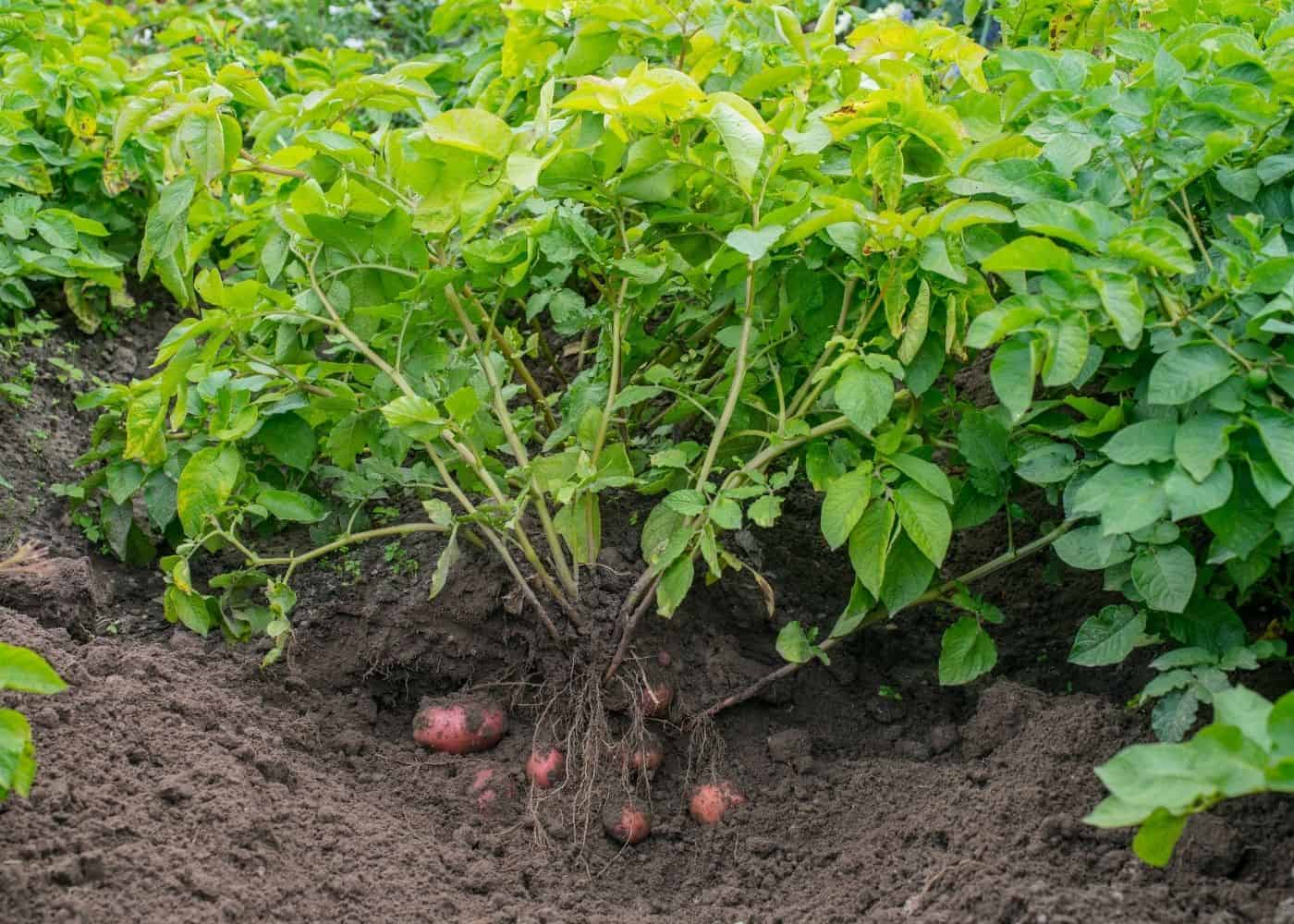The Carrot Companion Planting Guide: What To Plant With And Avoid
The Carrot Companion Planting Guide: What to Plant With and Avoid
Carrots are a popular vegetable that is easy to grow and can be enjoyed in a variety of dishes. However, there are some companion plants that can help carrots thrive, while others can hinder their growth.
In this guide, we will discuss the best and worst companion plants for carrots, as well as some of the benefits of companion planting. We will also provide some tips on how to plant carrots with their companion plants.
What is Companion Planting?
Companion planting is a gardening technique that involves planting certain types of plants together to benefit each other. Some companion plants can attract beneficial insects, deter pests, or improve the soil quality.
When companion planting carrots, it is important to consider the needs of the plant. Carrots need full sun and well-drained soil. They also benefit from being planted with nitrogen-fixing plants, which can help to improve the soil quality.
What to Plant With Carrots
Some of the best companion plants for carrots include:
- Onions: Onions release sulfuric compounds that can help to repel carrot flies, a common pest of carrots.
- Lettuce: Lettuce helps to suppress weeds and can also help to improve the soil quality.
- Marigolds: Marigolds are known for their insect-repelling properties. They can help to deter carrot flies, aphids, and other pests.
- Peas: Peas are nitrogen-fixing plants, which means they can help to improve the soil quality for carrots.
- Spinach: Spinach is a cool-season crop that can be planted early in the spring or fall. It helps to suppress weeds and can also provide shade for carrots.
What to Avoid Planting With Carrots
Some of the worst companion plants for carrots include:
- Dill: Dill is a member of the same family as carrots, and it can cross-pollinate with carrots. This can lead to carrots that are misshapen or have a poor flavor.
- Celery: Celery is another member of the same family as carrots, and it can compete with carrots for nutrients and space.
- Parsnips: Parsnips are also root vegetables that can compete with carrots for nutrients and space.
- Potatoes: Potatoes are susceptible to the same pests and diseases as carrots, and planting them together can increase the risk of infestation.
- Fennel: Fennel has a strong odor that can stunt the growth of carrots.
Tips for Planting Carrots with Companion Plants
When planting carrots with companion plants, it is important to consider the size and growth habits of each plant. For example, tall plants like sunflowers can provide shade for carrots, while shorter plants like lettuce can help to suppress weeds.
It is also important to plant companion plants that have similar water and fertilizer needs. For example, carrots and lettuce both need full sun and well-drained soil.
Conclusion
Companion planting is a great way to improve the health and productivity of your vegetable garden. By planting carrots with their companion plants, you can help to deter pests, improve the soil quality, and increase your harvest.
Carrots are a delicious and nutritious vegetable that can be grown in most gardens. But did you know that there are certain plants that can help or hinder their growth?
Some of the best companion plants for carrots include:
- Onions: Onions and other members of the allium family help to repel pests that can damage carrots, such as carrot flies.
- Marigolds: Marigolds have a strong scent that helps to repel pests and attract beneficial insects.
- Nasturtiums: Nasturtiums also have a strong scent that helps to repel pests, and they can also help to improve the flavor of carrots.
- Chives: Chives have a shallow root system, so they won't compete with carrots for nutrients. They also help to repel pests.
- Lettuce: Lettuce doesn't require a lot of space, so it can be planted in between rows of carrots. It also helps to suppress weeds.
Some of the worst companion plants for carrots include:
- Dill: Dill can attract carrot rust flies, which can damage carrots.
- Fennel: Fennel has a similar root system to carrots, so they will compete for nutrients.
- Parsnips: Parsnips have a similar root system to carrots, so they will compete for nutrients.
- Potatoes: Potatoes can attract the same pests as carrots, so it's best to avoid planting them near each other.
If you're looking for more information about the best and worst companion plants for carrots, I recommend visiting Gardenia Inspiration. This website has a comprehensive list of companion plants, as well as tips on how to plant and care for carrots.
FAQ of best and worst companion plants for carrots
Q: What are the best companion plants for carrots?
A: Some of the best companion plants for carrots include:
- Beans: Beans fix nitrogen in the soil, which can benefit carrots.
- Cabbage: Cabbage helps to repel pests that can damage carrots.
- Chives: Chives have a strong aroma that can repel pests.
- Leeks: Leeks also have a strong aroma that can repel pests.
- Lettuce: Lettuce doesn't compete with carrots for nutrients and can help to shade the soil, which can help to keep carrots cool.
- Nasturtiums: Nasturtiums have a strong aroma that can repel pests and attract beneficial insects.
- Onions: Onions have a strong aroma that can repel pests.
- Peas: Peas fix nitrogen in the soil, which can benefit carrots.
- Peppers: Peppers don't compete with carrots for nutrients and can help to shade the soil, which can help to keep carrots cool.
- Radishes: Radishes mature quickly and can be harvested before they compete with carrots for space.
- Rosemary: Rosemary has a strong aroma that can repel pests.
- Sage: Sage has a strong aroma that can repel pests.
- Tomatoes: Tomatoes don't compete with carrots for nutrients and can help to shade the soil, which can help to keep carrots cool.
Q: What are the worst companion plants for carrots?
A: Some of the worst companion plants for carrots include:
- Carrots: It is not recommended to plant carrots next to other members of the carrot family, such as celery, dill, fennel, and parsley. These plants can attract the same pests and diseases.
- Dill: Dill can attract carrot flies, which can damage carrot plants.
- Fennel: Fennel can attract carrot flies, which can damage carrot plants.
- Parsnips: Parsnips can attract carrot flies, which can damage carrot plants.
- Potatoes: Potatoes can attract the same pests and diseases as carrots.
Q: What are the benefits of companion planting carrots?
A: Companion planting carrots with other vegetables can provide a number of benefits, including:
- Improved pest control: Some companion plants, such as marigolds and nasturtiums, have strong aromas that can repel pests.
- Increased pollination: Some companion plants, such as beans and peas, can attract pollinators, which can help to increase pollination and fruit production.
- Improved soil health: Some companion plants, such as beans and peas, can fix nitrogen in the soil, which can benefit carrots.
- Reduced competition for nutrients and space: Companion planting can help to reduce competition between plants for nutrients and space, which can lead to healthier and more productive plants.
Q: How far apart should carrots be planted?
A: Carrots should be planted 2-3 inches apart. This will give them enough space to grow and develop their roots.
Image of best and worst companion plants for carrots
Here are 5 different images of best and worst companion plants for carrots:
- Best companion plants:
- Carrots and beans: Beans fix nitrogen in the soil, which is beneficial for carrots.

- Carrots and cabbage: Cabbage helps to repel pests that can damage carrots.

- Carrots and lettuce: Lettuce helps to shade the soil around carrots, which can help to prevent them from bolting.

- Carrots and onions: Onions help to repel carrot root fly, a common pest of carrots.

- Carrots and tomatoes: Tomatoes help to deter nematodes, which can damage carrot roots.
- Carrots and beans: Beans fix nitrogen in the soil, which is beneficial for carrots.
- Worst companion plants:



Post a Comment for "The Carrot Companion Planting Guide: What To Plant With And Avoid"